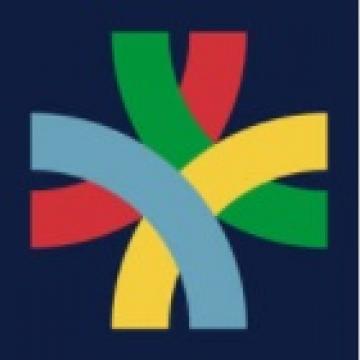Digital Learning in Museums

Museums and cultural organisations play a key role in the formal learning environment, offering engaging, ‘beyond the classroom’ learning experiences for primary, secondary FE and HE students.
Increasingly museums are utilising digital tools to facilitate these formal learning experiences both to respond to an increasingly digital learning environment and enhance the learning experience. Digital is now a key component of wider learning strategies.
This one day conference will be devoted to digital learning in museums, with a particular focus on ‘formal learning’. The day aims to share insights and lessons from current work happening across he sector, but also discuss bigger questions around the role of digital in terms of learning strategies and sustainability.
Click here to book your ticket.
Outline Programme
10.00: Arrivals and Coffee
10.30: Intro
10.45: Session One
Naomi Chapman, Education and Outreach (Polar Museum, Scott Polar Institute) and Sarah-Jane Harknett, Outreach Organiser (Museum of Archaeology and Anthropology), University of Cambridge Museums
What do teachers want from a digital museum resource?
In early 2016, a team of educators from three of the Cambridge University Museums conducted a research project into how teachers use collections and digital resources in the classroom to answer the question: what do teachers want from a digital museum resource? Naomi and Sarah-Jane will share findings from this work, identifying both how digital technologies are used in the classroom, and common barriers to accessing collections based resources. They will also discuss how they have applied what they learnt from this process to the digital learning strategy at University of Cambridge Museums.
Paul Clifford, Schools Officer, V&A Museum of Childhood
Making the V&A Museum of Childhood STEAM
In this session Paul will discuss why the V&A Museum of Childhood chose to develop a STEAM workshop as part of their formal learning programme using ‘Maker’ technologies. The theme of the workshop ‘Robots’ is on trend with current popular toys, ties in with the museum’s unique collections and plays into the global conversation around technology and its impact on jobs, individuals and society. It offers a blended learning experience using context, making, enquiry and automation.
Alison Hadfield, Learning and Access Curator, Hannah Sycamore, Curatorial Trainee (Learning and Access), Museum of the University of St Andrews (MUSA)
For Real! Museum Learning in a Digital Age
How do we measure the success of museum learning methods? Alison and Hannah will share findings from a research project conducted by the School of Classics and the Museum of the University of St Andrews (MUSA) which produced empirical data on the impact of museum digital media. In this interactive session they will provide insights into some of the recurrent themes that emerged from studies with focus groups of different ages, interests and backgrounds. These include expectations around authenticity, the distancing effect of 3D digitisations, and the assumption that objects behind glass have increased ‘value'.
Rick Lawrence, Digital Media Officer, Royal Albert Memorial Museum and Art Gallery (RAMM) and Ruth Cohen, Project Manager, Daisi
“Museum Machina” – digital arts inspired learning
Museum Machina is a partnership project that looks at how museum collections can complement digital arts inspired learning. Working alongside ‘Arts Machina’, the projects are looking to address the disjoint between contemporary artistic practice, where digital media is a vital tool in the creative process, and ‘art’ as it is currently experienced by young people. Rick and Ruth will provide insights from the pilot workshops delivered with artists, teachers and school groups which utilised technologies such as GoogleEarth, GPS drawing, GPX Master and image manipulation, talk about the next phase of the project and the toolkit being produced, and how learning from this work is feeding into the museum’s digital strategy.
12.30: Lunch
13.30: Lightning Talks
TO BE ANNOUNCED SHORTLY
14.30: Break
15.00: Session Two
Drew Wilkins, Head of Educational Content, Fish in a Bottle
How to get the most from your digital budget
Fish in a Bottle has been delivering award winning digital content for 14 years and have partnered with cultural organisations of all shapes and sizes including the Science Museum, Museum of London and Oxford University Museum of Natural History. Drew will share insights and experience from working on projects with tight budgets and suggest ways museums can make their resource go further. He’ll look at things like when in a project to engage a digital agency, optimising the sign-off process, making the most of existing assets and why you shouldn’t build for the future.
Ed Lawless, Museum Teacher, British Museum
Virtual Visits: using web-link platforms to expand the reach of museum learning programmes
The British Museum’s Samsung Digital Discovery Centre is using live web broadcasts (e.g. Google Hangout) to enable KS2 students to virtually visit the Museum and engage with its collection and staff without leaving the classroom. By sharing insights, lessons learned and effective tools, Ed will advocate for the use of virtual classroom technology as an effective approach for extending the reach of a museum’s formal learning programme. Ed will also share some thoughts on ‘what next’ for this approach to digital learning for museums.
Michelle Harrell, Director of Teaching and Learning, North Carolina Museum of Art
The Future is Now; Distance Learning in Museums
The North Carolina Museum of Art is widely recognized for its online education resources and distance learning opportunities, and over the past two years has collaborated with a state wide community of educators and national panel of experts to investigate the critical question: what is the unique role of art museums in supporting tomorrow’s learners? Michelle will share findings from this work through three different approaches to distance learning and discuss how these insights have influenced their education strategy.
16.30: END (but stick around for networking drinks!)
Contact name: Jessica Suess
Contact email: jessica.suess@museums.ox.ac.uk
Audience: Open to all


